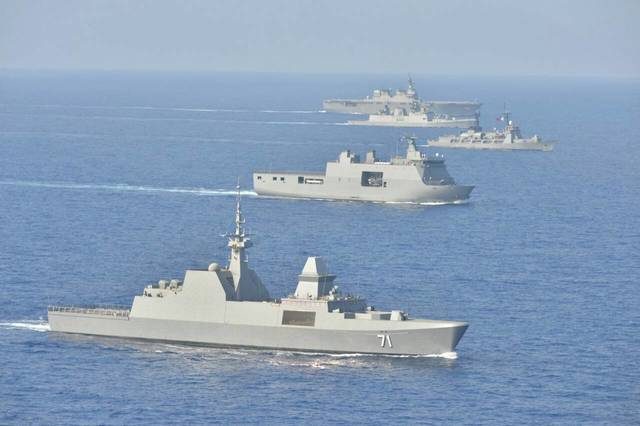SUMMARY
This is AI generated summarization, which may have errors. For context, always refer to the full article.

MANILA, Philippines – In the face of China’s mounting aggression in the South China Sea, Southeast Asian countries must join forces to conduct joint patrols and help assert one another’s claims in the maritime area, retired Supreme Court senior associate justice Antonio Carpio said on Monday, April 27.
Carpio said it was time the Philippines, Malaysia, and Vietnam, reached out to one another, considering they each recently witnessed China’s harassment in their waters, particularly in oil fields.
Carpio was referring to an incident in February when a China warship targeted the BRP Conrado Yap near the Malampaya gas field in the West Philippine Sea. He also cited instances when China sent its survey shop as well as coast guard ships to oil fields in Vietnam and Malaysia’s exclusive economic zones.
“You’d be sending a message to China that they cannot just pick us out one by one. We are united,” Carpio said in a forum organized by the Foreign Correspondents Association of the Philippines.
“And If China still persists on doing the same thing, then we will also ask the Americans – we will join them in our naval patrols. I think if we do not do that, we can see Chinese warships, Chinese survey ships moving towards Reed Bank, towards even Malampaya,” Carpio warned.
“This is really an escalation and we should take this very seriously,” he added.
Carpio, one the countries’ staunchest defenders of the West Philippine Sea, has long noted FONOPs, or “freedom of navigation and overflight operations,“ are the “most robust enforcement” of the 2016 arbitral award that asserted the Philippines’ claims in the strategic waterway.
The historic ruling that the Philippine won against China also invalidated Beijing’s 9-dash line used to assert its expansive claims in the South China Sea.
Why this matters. Carpio pointed out the seriousness of China’s targeting of a Philippine Navy vessel in the West Philippine Sea, denouncing it as a hostile act and “serious escalation” of tensions in the strategic waterway.
He noted the incident was “very unusual” as it was rare for China to send a patrol near Malampaya, which was only some 43 nautical miles from Palawan.
The Philippines earlier filed a diplomatic protest over the incident, as well as China’s moves to claim portions of the Philippine territory in the Spartlys as part of its own.
Carpio, like other experts, said China has been ramping up tis aggressive activity in the South China Sea as countries battled the coronavirus pandemic. He condemned this and warned it would only escalate if countries did not take action.
“It’s very unfortunate that China is doing this during the pandemic…. We are battling a pandemic that came from China and China is taking advantage of our difficulty right now,” he said.
What comes next? China’s targeting of a Philippine Navy ship near Malampaya comes as Manila and Beijing are pursuing talks for possible joint oil and gas exploration in the West Philippine Sea.
Asked what impact the Malampaya incident may have on this, Carpio said China may be trying to extract greater benefits from the deal whose pertinent details – like what areas will be explored and what sharing scheme will be used – have not been finalized yet.
“I think that’s the bottom line. They’re threatening our operations in Malampaya because they want to extract greater benefits under the joint development,” he said.
An alternative, Carpio noted, could be that China was doing this as part of efforts to assert its 9-dash line which it insists is the boundary between the Philippines and China.
In either case, Carpio stressed the Philippines cannot compromise on defending its rights in the West Philippine Sea. “Our resources there are far more valuable than anything,” he said. – Rappler.com
Add a comment
How does this make you feel?





There are no comments yet. Add your comment to start the conversation.